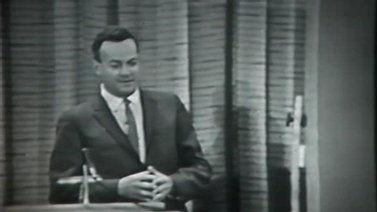The sole purpose of journalism is to provide citizens with the information they need to make the best possible decisions about their lives, their communities, and their governments. Media has been called the fourth pillar of democracy. But in this crisis, the media has fallen far from these standards.
If we can agree on the above that the purpose of media is not to create sensationalism, then let us dive deeper into what the media has been showing us. These caught up late with the virus and came up with more conspiracy theories about bats than facts. The first case in our country was reported towards the end of January. As late as the second half of February, there was no ripple in the news. They were more involved with the Namaste Trump event.
For the Covid outbreak, they should have reported only the numbers. They did that, with a bias - selective truth. They reported the number of deaths each day, but not the number of recoveries. If they had done that then the scale of panic would have been far reduced. More than eighty percent of patients have only mild or no symptoms and might never seek a diagnosis. Why do you need to add adjectives like ‘deadly’ over the virus? The fatality rate in India is 2.8 percent (from Wikipedia). As of today, there have been a total 8,498 deaths due to the virus; the normal death rate in India is 26,000 a day! During this period, did the other diseases come to a stop? Has no one died of a heart attack, cerebral stroke, or cancer? These facts have been completely obscured. People are beating their chests over the fact that the number of deaths is a record - it is increasing every day. Now calm down and try to think rationally, there have been a hundred deaths already, and five people died today. The total number of deaths is now one hundred and five. This number is certainly increasing and it is bound to increase. How odd would it be if the total death count started decreasing instead? Yesterday, there were a hundred dead and today there are ninety - what happened to the ten? Did they come back from death?.
The impact of these actions is that people are depressed and scared to death even after the onset of Unlock 1.0. A friend of mine is obsessed with Covid updates and possible cures for the virus. In his own words, 'The truth is that I have never been so scared before. There have been instances when I've lost my sanity momentarily but this is a more prolonged phase. And it's continuous.' Is the media responsible for this feeling of impending doom? Yes, it is.
This is one fault of the media. There are several others. For example, when the Tablighi Jamat incident occurred, all the channels got busy in spreading Islamophobia. The incident indeed was careless and the people should be punished strictly. I agree with that. But I do not side with hatemongering. The irony is, recently one of these channels was found to have flunked all the lockdown rules. That resulted in twenty-nine employees contracting the virus and spreading it around. The tables have turned. Should they not be painted under the same light as they painted the Tablighi Jamat?
When the lockdown was announced, the citizens were given only four hours to prepare. Naturally, most of the migrant workers were stuck in the cities they were working in. Two hundred people died due to the lockdown in the first week. In the past few weeks, more than a hundred have died due to the lockdown - hunger, dehydration, exertion. That news is also missing. How can the media ignore the plight of thousands of people? Not everyone has their hands dirty, a few news channels and websites are reporting facts. I obtained the above facts from these sources.
During the Covid outbreak, has everything reached a standstill? Why is there no news about other problems(for example, politics)? Much less hubbub has been created for the cyclone, Amphan, that hit Bengal, killed 85 in forty-eight hours, and destroyed a million homes. There has been complete silence of the cruel communal violence in Telinipara, Hoogly in Bengal.
The masses don’t usually think rationally, they respond to the opinions that are hammered into their heads. According to a recent ICMR study, the numbers of the people infected in some cities could be 100-fold or even 200-fold the numbers of the confirmed cases there. These people are asymptomatic; they are so unaffected that they never even know it happened to them. This fact is being presented as something to worry about, that might lead to the return of the lockdown. Let us look at the other side; this also means that a small percentage of the population is being affected by this virus, and a far smaller percentage is dying of this virus. If presented properly, this fact ought to reduce panic.
The media has been so blinded by its pursuit of sensationalism that when the Covid hype dies down, they will be crying over Hantavirus, earthquakes, and asteroids. Overall, as I said earlier, media has had a far negative impact during this pandemic. They have blown this to ridiculous proportions. It has been more of a panic-demic than a pandemic.


